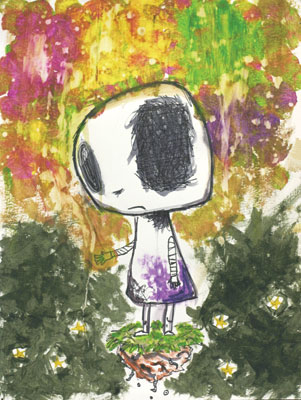All Nonfiction
- Bullying
- Books
- Academic
- Author Interviews
- Celebrity interviews
- College Articles
- College Essays
- Educator of the Year
- Heroes
- Interviews
- Memoir
- Personal Experience
- Sports
- Travel & Culture
All Opinions
- Bullying
- Current Events / Politics
- Discrimination
- Drugs / Alcohol / Smoking
- Entertainment / Celebrities
- Environment
- Love / Relationships
- Movies / Music / TV
- Pop Culture / Trends
- School / College
- Social Issues / Civics
- Spirituality / Religion
- Sports / Hobbies
All Hot Topics
- Bullying
- Community Service
- Environment
- Health
- Letters to the Editor
- Pride & Prejudice
- What Matters
- Back
Summer Guide
- Program Links
- Program Reviews
- Back
College Guide
- College Links
- College Reviews
- College Essays
- College Articles
- Back
A Culture Addicted to Misery
I would like to involve you in a little social experiment. No, it won’t be difficult or out of the way--just go about your day as usual with one minor adjustment. When you are outside, notice people’s expressions. When you are doing your business, monitor your thoughts. Then, and only then, will I welcome you back with arms open and a batch of cookies in hand!
Chances are that you probably came across some sour faces, even more so if you live in a busy city or town. You probably caught yourself thinking some negative thoughts or even personal involvement in a dramatic affair. And if you turned on the television or read any kind of teen literature, you more than definitely encountered some drama, drama, DRAMA! This reoccurrence is more than coincidence-it is a trend.
Why are we constantly bombarded with all of this sadness and misery? All of this tribulation and sorrow? Heartache and grief? After all, it seems as obvious and as factual as a math equation: happiness>sorrow. We cannot avoid sorrow, but modern society has become trapped in a misery morass.
To a certain extent, we have glamorized sadness and misery. We are attracted to books like the Hunger Games (in which children kill each other) and movies like Twilight (girl gives birth to quasi-demon baby after years of heartache… need I say more?). We fantasize and get in a craze over these things. We idolize the suffering soul, and in some cases, want to marry it. And when we get caught up in some sort of drama- isn’t it exciting? Yes, you know it is bad, but there is this little feeling inside of you that you don’t even notice. A feeling that makes you crave more and hence attract more and more of it towards you. When did our society make this shift? When did life become so complicated…and why?
It is hard to discuss the facets of modern society without discussing the rise of the computer. It’s true. I believe that we are living in a more impersonal world than the world that our ancestors lived in. Go ahead. Ask your grandparents. I won’t be proven wrong. This rushed pace of life leads to the dulling of our senses, the listlessness of our souls. You would think that dulling yourself to pain would be the better alternative to it, but all evidence points to the idea that we go to this pain to spice up our dull lives instead. After all, it is much more accessible and much easier to get that jolt of emotion. The one that quickens our heart rate and suddenly makes us alert. But this kind doesn’t stay long.
Look at a village. Look at the country. Somewhere rural, possibly. But most definitely, somewhere where the people are close. You may think that they have so little, that is why we must help them. But many volunteers can vouch that the kids and even the adults of those sorts of areas are the happiest. Why? Life is simple and personal ties are important. Life involves living and breathing and feeling and seeing and exploring. And happiness enters naturally.
The addicted to misery and pain have their priorities “flipped turned upside down”. They are following the path that is the easiest to follow in today’s modern society, the path that resembles the conformist and mechanic ways of an assembly line. We can only break free from the allure of misery when we are able to live our lives with vigor. However, true happiness, appreciation of the journey, can never be replaced by such illusory means.

Similar Articles
JOIN THE DISCUSSION
This article has 0 comments.
